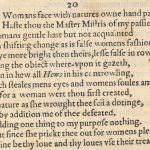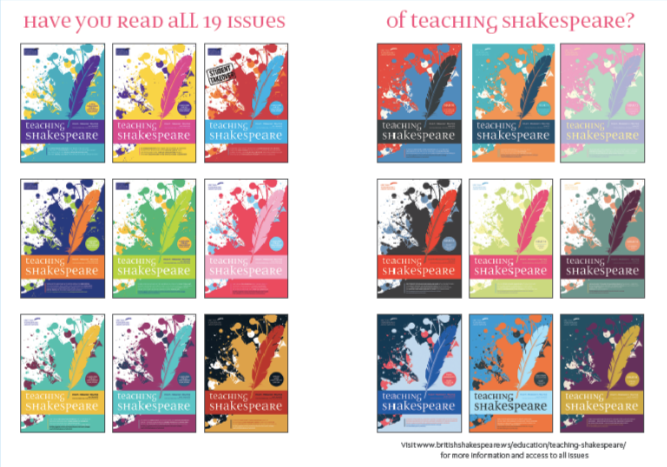Nominations for 2020 BSA Honorary Fellowships
24th September 2019
An Invitation from the Chair of the BSA Fellowship Committee:
The British Shakespeare Association endows two Honorary Fellowships each year. This year, 2019, the Fellowship was given solely to Professor John Drakakis, for his outstanding work and lifetime’s achievement in the field of Shakespearean scholarship.
For 2020, the BSA wishes to revert to the usual practise of awarding two Honorary Fellowships, to be endowed at next year’s annual conference in Surrey. I am therefore writing to ask you to offer your nominations for next year’s award. All members of the BSA are able to make nominations, but I would like to draw your attention to a change in nomination criteria, highlighted in bold below:
“The title of ‘Honorary Fellow of the British Shakespeare Association’ should be reserved for those who, at whatever level, have made, or are making, a major contribution to the field of Shakespeare activities, whether it be Scholarship, Education more generally, or the Performance of the plays. This contribution should fall into the category of demonstrating a lifetime’s achievement of excellence, or the demonstration of excellence through a sustained engagement with Shakespeare and his works.”
The language has been altered to encourage greater inclusivity in this aspect of the BSA’s work, partly on the basis of this year’s very successful conference and its attempts to unravel the hierarchies involved in the study and performance of Shakespeare. The Honorary Fellowships Committee and BSA Board acknowledge that there have been systemic obstructions in place that have debarred individuals from achieving a lifetime’s worth of excellence, and have agreed a change in the criteria language to reflect this.
Nevertheless, excellence is still the guiding criterion for nominating Fellows, and I would urge Members to adhere rigorously to the above, resisting issues of celebrity or public notoriety. It may be that your nomination is unheard of to the majority of BSA members but they have quietly transformed some aspect of Shakespeare scholarship, education, publishing, media or performance nonetheless.
It is certainly permitted for Members to individually take soundings within the wider field of Shakespeare activities, but on the understanding that enquiries will need to be tactfully made, that information should remain strictly confidential, and that no candidate should be approached individually.
All proposals, from whichever area, should then be accompanied by TWO nominations (a Proposer and a Seconder) along with a formal written proposal by the Proposer stating the case for nomination (a short paragraph of not less than 200 words and not more than 500 words).
Once all Nominations have been received, the Fellowship Committee will then make a decision – via discussion and vote – on who the two candidates shall be. Those two names will then be presented and recommended to a meeting of the full Board of Trustees – a process which then requires the Board’s ratification.
Previous recipients of the Fellowships over the past few years have been : Cicely Berry, Stanley Wells, John Joughin, Reginald Foakes, Terence Hawkes, John Russell Brown, Janet Suzman, Roger Harcourt, Chris Grace, Adrian Lester, Sarah Stanton, Ann Thompson and John Barton.
I really would welcome as many names as possible, from all the constituencies of the BSA, and for Members to think broadly about the areas of work in which excellence might occur. The Fellow may be drawn not only from academia or the professional theatre, but also from the realms of illustration, animation, applied theatre, youth theatre, community or visual arts, to name but a few. I greatly look forward to hearing your suggestions.
The closing date for Nominations is 6 December 2019.
Please send all nominations to the Chair of the Fellowship Committee – Eleanor Rycroft – via email to e.rycroft@bristol.ac.uk
With many thanks in anticipation to you all,
Eleanor




 Do you have an interest in identifying and honouring those individuals who have made a substantial contribution to our understanding of Shakespeare as creatives or as scholars? The Honorary Fellowships committee is seeking to recruit two new members to take up a committee role this autumn.
Do you have an interest in identifying and honouring those individuals who have made a substantial contribution to our understanding of Shakespeare as creatives or as scholars? The Honorary Fellowships committee is seeking to recruit two new members to take up a committee role this autumn.
